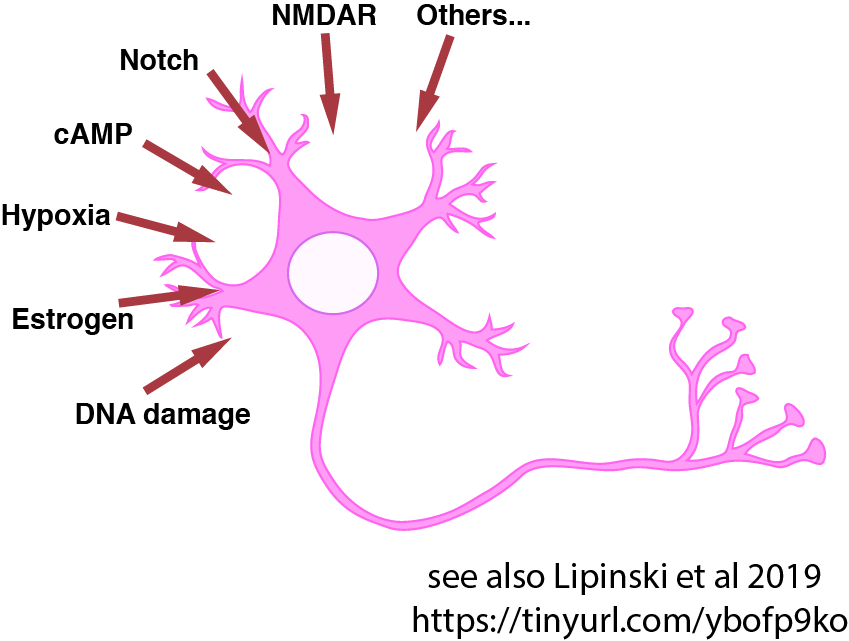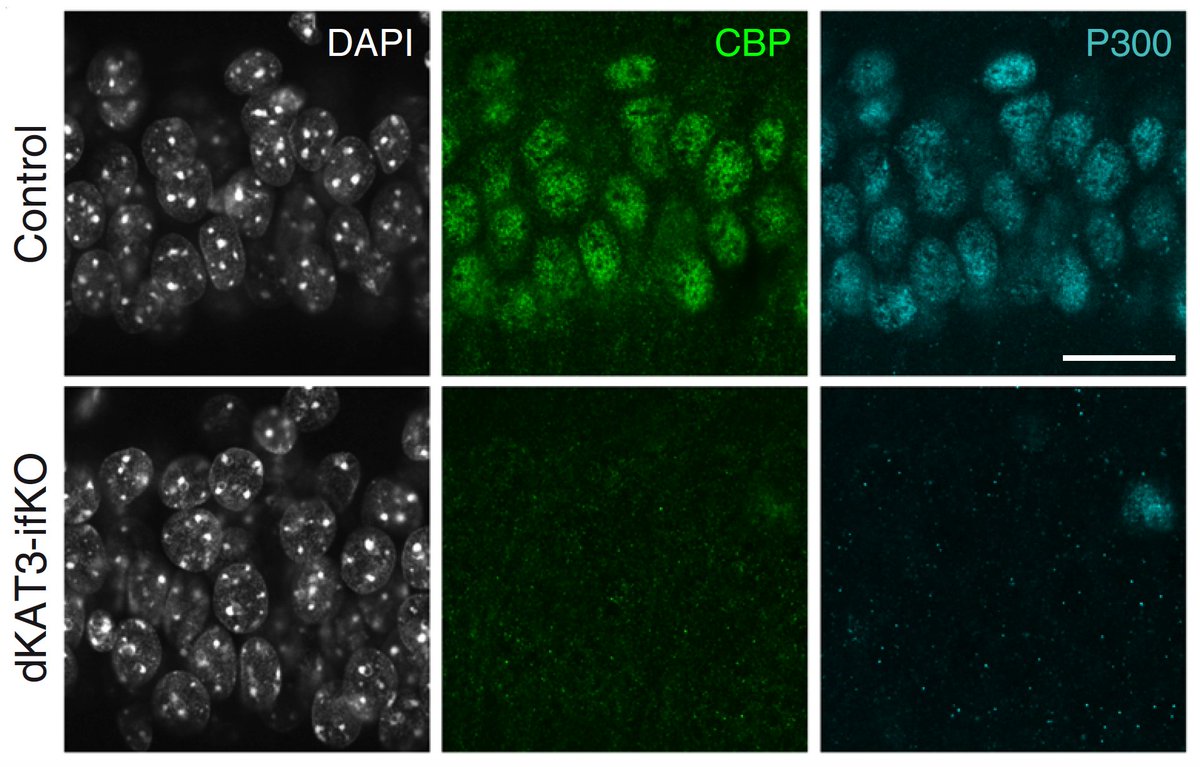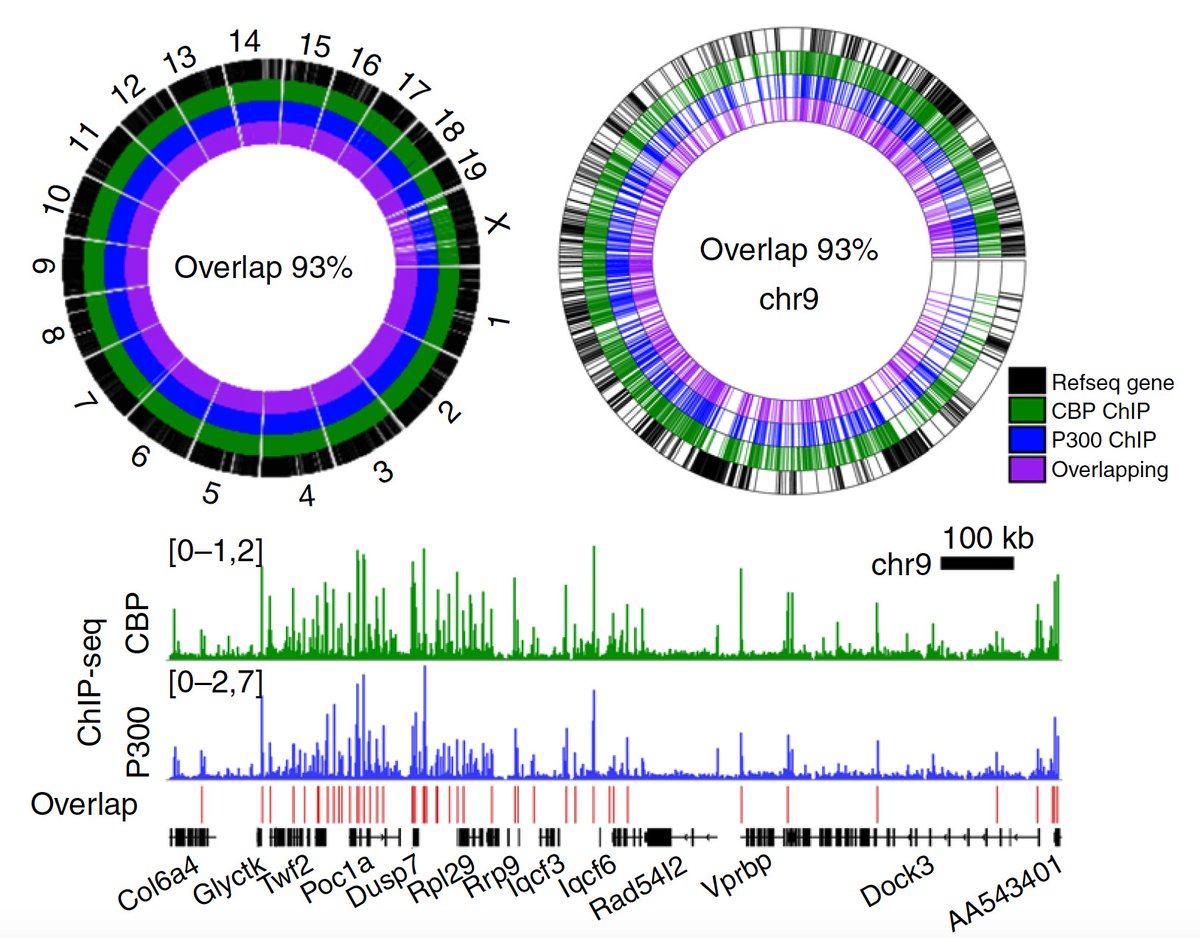Our study on the neuronal identity maintenance is finally out @NatureComms https://rdcu.be/b4ll4 ">https://rdcu.be/b4ll4&quo...
Congratulations @Beatriz16353951 @RafaelVianaphD @CarmenNavarron @JPLopezAtalaya and others @NeuroAlc. Here is an overview in a TLDR thread: (1/11)
Congratulations @Beatriz16353951 @RafaelVianaphD @CarmenNavarron @JPLopezAtalaya and others @NeuroAlc. Here is an overview in a TLDR thread: (1/11)
Neurons are very long-living cells that can survive for almost a century with only minor changes. So what keeps their transcriptional and functional identity in check in a highly stimulated environment? (2/11)
In a first such study, we found that KAT3 proteins (CBP and p300) are not only important for the development of the nervous system, but the continuous expression of at least one of them is necessary to keep the neuronal identity intact (3/11)
When both of the genes are knocked out in adult excitatory neurons in vivo, the cells stop firing, lose their characteristic morphology and the gene expression program stops resembling neurons (4/11)
Importantly, the transcriptional data does not suggest that the KAT3-KO neurons dedifferentiate, transdiffentiate or die. They just seem to lose their identity... (5/11)
In fact, the #singlecell RNA-seq experiments show that molecular identity of multiple excitatory #neuron subtypes converge on a pretty bizarre undefined cell state/type (6/11)
So why does this happen? ChIP-seq analysis of CBP and p300 show that these proteins bind in the mouse hippocampal chromatin in almost exactly the same genomic loci! This explains why either of the proteins is enough for neurons to keep their identity (7/11)
These KAT3 binding loci in neurons correspond to bHLH pro-neural transcription factor motifs, high levels of H3K27ac and super-enhancers. Loss of KAT3 in these loci causes an almost complete H3K27 deacetylation (8/11)
To our astonishment, the reintroduction of a full-length CBP or histone acetylation by the use of #CRISPR epi-editing, rescues the expression some neuronal-specific genes in vitro (9/11)
Summing up, even a minimal dose of KAT3 activity is enough to safeguard the neuronal identity in vivo. Without it neurons (super-enhancers) cannot replenish their stable H3K27 acetylation and therefore maintain the cell-type specific transcription (10/11)
Last but not least, once again thank you Angel Barco, @Beatriz16353951 @RafaelVianaphD @CarmenNavarron @JPLopezAtalaya and others @NeuroAlc for being fantastic collaborators. It has been great few years and I am eternally grateful for what learned from you! (11/11)

 Read on Twitter
Read on Twitter









